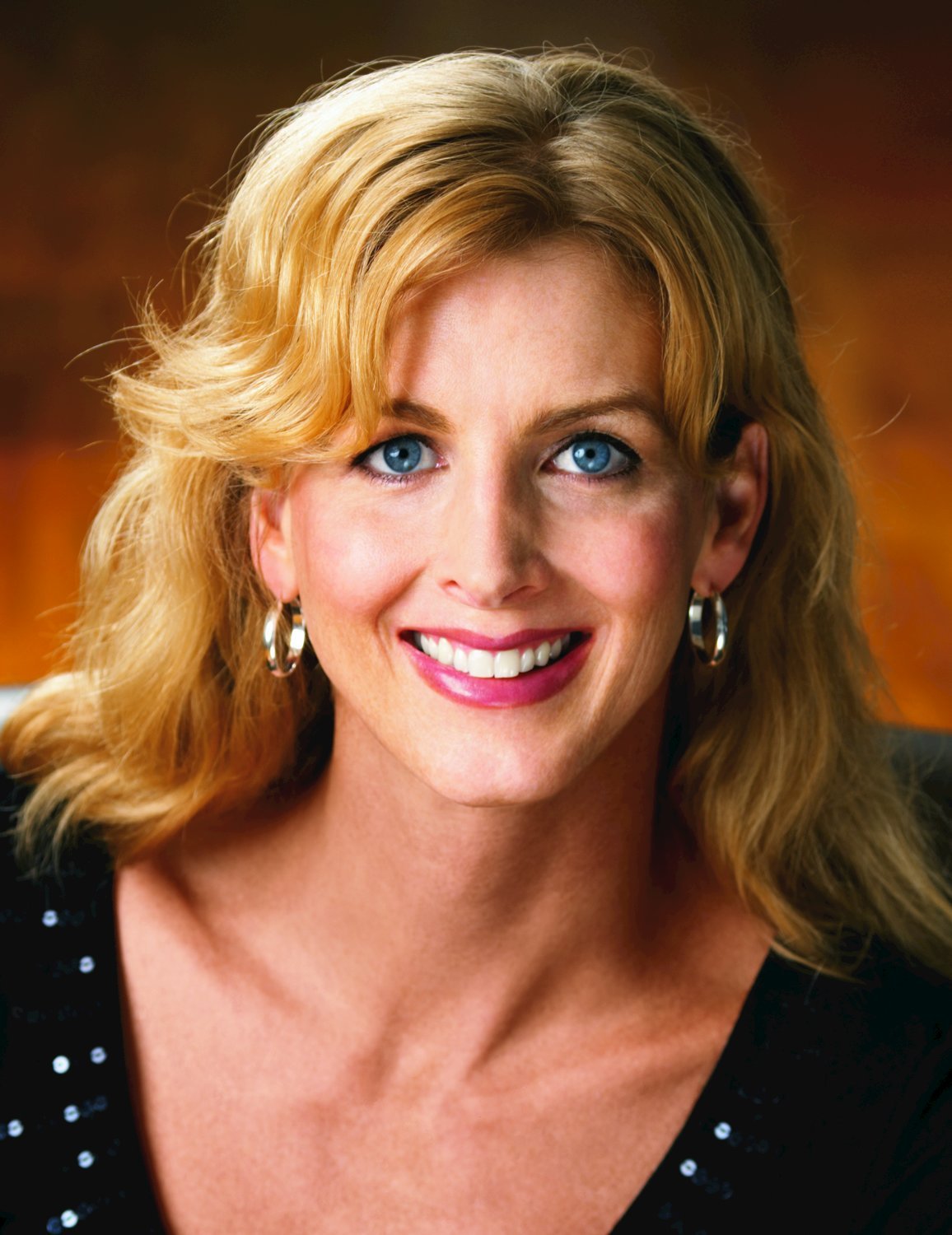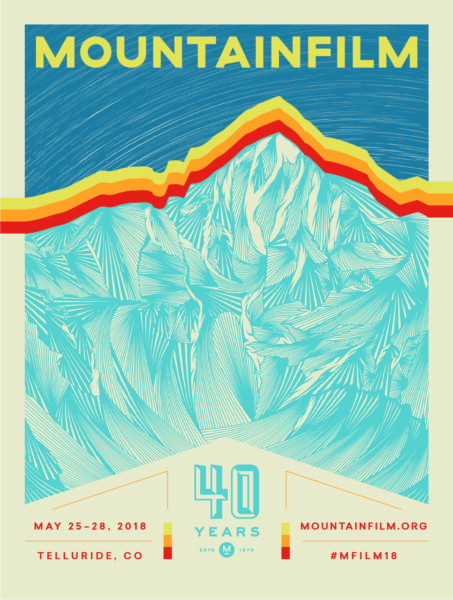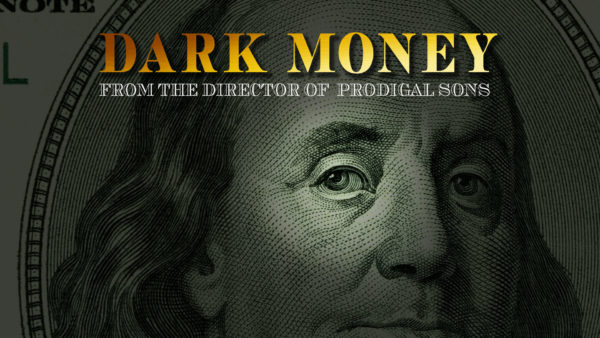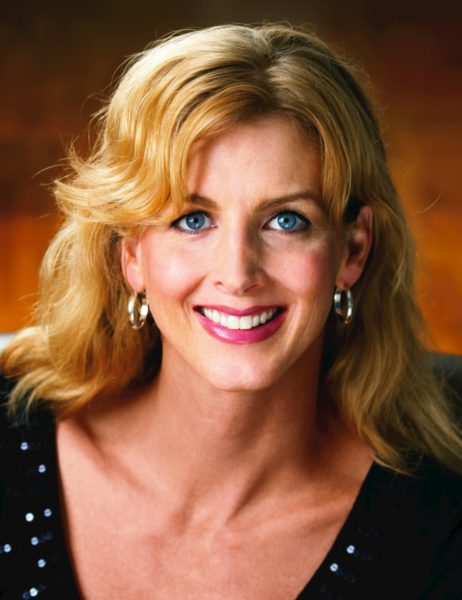
20 May Mountainfilm: Kimberly Reed & “Dark Money”
Start planning your 2018 Mountainfilm Festival happening over Memorial Weekend in Telluride. The schedule includes times and venues for films, presentations, the Moving Mountains Symposium, parties, town talks, book-signings, special events and more.
Click on the FULL SCHEDULE HERE.
Also, Telluride author Susan Dalton captures Mountainfilm‘s best memories in “Mountainfilm: 40 Years.”
The beautiful coffee table book costs just $49 (tax included) and can be pre-ordered now here or head to Between the Covers Bookstore, 224 West Colorado Avenue or call 970-728-4504. Look inside here.
At Mountainfilm, director Kimberly Reed presents her latest doc: “Dark Money.” Scroll down to listen to Reed’s podcast to learn more about her life and “Dark Money.”
And to learn more about transgender individuals, go here. To support Reed’s efforts to help fight Trump’s discriminatory transgender military ban, go here.

Kimberly Reed’s first major film, the award-winning “Prodigal Sons,” had its world premiere at the Telluride Film Festival in 2008.
“Prodigal Sons” is a very personal story about Reed’s life in which the writer-director returns home for her high school reunion, ready to reintroduce herself to the small town as a transgender woman and hoping for reconciliation with her long-estranged, adopted brother Marc. At the heart of the film is the brothers’ battles with identity, sexual and biological.
The documentary Reed is bringing to the 45th annual Mountainfilm is way less personal, less about our relationship to The Other and more about what ails our country politically – at least it touches upon a key driver of that sad story…
The “Dark Money”/Koch brothers bit.

“Dark Money” premiered earlier this year at the Sundance Film Festival and was picked up by PBS to show this fall. But Mountainfilm audiences get a sneak peek over Memorial Weekend.
“Dark Money” underlines Reed’s belief that for the public to be fully and intelligently engaged in any political issue, people must come to understand the ways money impacts the big picture.
As for PBS, the network is determined to use its megaphone to open that Pandora’s box wide, to “crack the case on corruption, money and elected officials” by releasing the film in the run-up to the 2018 midterm elections.
“In this era, it is crucial that we give a platform to stories that shine a light on the impact of political forces outside the traditional corridors of power,” said Marie Nelson, Vice President of News and Independent Film for PBS. “‘Dark Money’ deftly examines the way that money in politics can affect our political process from the ground up, and we are deeply committed to getting this film seen by the widest possible audience as Americans head back to the polls this November.”
“Poll after poll says that Americans are concerned about the impact of money in politics, regardless of which party they belong to, if they belong to a party at all. The problem is that most Americans also believe that there’s nothing that can be done. What happened in Montana is in many ways a playbook for other states to follow. We’re thrilled to be working with PBS to bring ‘Dark Money’ to all Americans with the message that we can only achieve the ideal of being ‘a government for the people, by the people’ if we believe, collectively, we can,” said Reed.
“Potent! A rather harrowing portrait of democracy under threat, even if ultimately there is hope,” said Variety.
“As heartening a political story as you are going to get these days,” raved the Los Angeles Times.
“All the hallmarks of a great legal thriller, [Kimberly] Reed puts flesh and bone to the arcane minutiae and forcefully argues that dark money represents the greatest modern threat to our democracy. Essential and riveting,” noted Departures Magazine.
Reed’s story began simply: she was following Montana’s legal challenge to fight the Citizens United ruling and the Koch Brothers, who, it could be argued, are running the White House through their all too cozy relationship with VP Mike Pence – and through him, with the president. But the movie opens up its tent much wider, morphing into an examination of the web of corporate interest and its interference in trying to swing Republican politicians in particular.
What happened in Montana dates back over 100 years ago when corrupt money scarred the state’s democracy. When copper baron William A. Clark, who owned Anaconda Copper Mine Co., one of the biggest trusts in the country, attempted to bribe his way into the United States Senate. The local response? Montana prohibited corporate campaign financing in 1912 in an attempt to purge the influence of big money bosses like Clark over public policy decisions.
However where Clark failed to corrupt the political landscape in his state, he still managed to leave a dirty legacy behind by corrupting the state’s physical landscape in the form of an enormous toxic lake where pit mining for copper went on for decades.
Then, in 2010, the U.S. Supreme Court’s Citizens United ruling classified campaign expenditures by corporations as free speech and allowed donors to remain undisclosed.
Today, after that Citizens United ruling, dark money floods election campaigns nationwide – but with Montanans still standing up to stop history from repeating itself.
“Not based on, but overlapping on certain points with, Jane Mayer’s 2016 book of the same name, ‘Dark Money’ sees the director Reed returning to her home state of Montana, for the reason that its economic history happens to provide an ideal backdrop for the story at hand. The big, sparsely populated state likes to think of itself as independent-minded politically, one of the few places in the country left where citizens feel a direct link to their local forebears and the pioneer spirit,” wrote The Hollywood Reporter, adding:
“‘Dark Money’ effectively pinpoints how the smear campaigns function in an election; they paint with a wide brush, are often misleading or outright lies and often show up just days before voting, leaving the accused no time to respond or identify who is making the wild claims. It’s the latter issue that is particularly vexing; a case could be made for individuals being allowed to contribute as much money as they want to candidates for office or for propositions, but why should their identities be protected?”
Enter the other “trans” in Reed’s story: transparency or the Holy Grail of politics hidden, at least for now, in the foggy foggy dew of the ruling.
Is there hope in Reed’s celluloid account of the way cases are adjudicated and our country is governed? Is there a knight in shining armor on the horizon?
“If there is a hero to this story and film, it is Montana Free Press reporter John S. Adams, whose relentless persistence helped local authorities prevail in a relevant corruption case that at least created a ray of optimism. What is really under scrutiny here is the sort of David and Goliath, Little Guy vs. Big Vested Interests tale that has cropped up with regularity over the course of America’s history. In Hollywood movies about such things, the individual very often won at the end, a pattern Reed, and most viewers of this film, would like to see repeated. ‘Dark Money’ represents a sure-footed and well-placed step in that direction,” sums up The Hollywood Reporter.
If the media is the message, Reed’s message could not be clearer: big bucks campaign financing has got to go.
Or the center of our democracy may not hold.
Say a prayer.
And see the movie.
“My wife and I watched this marvelous documentary at the Sundance Film Festival last night. It is extremely well done and it presents a compelling narrative about the role of ‘dark money’ (political funds that cannot be traced to their source) in contemporary American politics. Flawed campaign financing laws lie at the heart of many of our difficult political problems. Kudos to Kimberly Reed and everyone involved in producing this gem,” said a fan back in January.
More about Kimberly Reed:

Filmmaker Kimberly Reed at Mountainfilm with “Dark Money.”
Named early in her burgeoning career as one of Filmmaker Magazine’s “25 New Faces of Independent Film,” OUT Magazine’s “Out 100,” and Towleroad’s “LGBT Film Character Of The Year,” Kimberly Reed uses her position as the first commercially-released transgender filmmaker to tell compelling stories. Her work has been featured on the Oprah Winfrey Show, CNN, NPR, Details magazine, and the Moth Radio Hour, leading to fellowships with New York Foundation for the Arts, Squaw Valley Community of Writers, and Yaddo Artists’ Community.


Sorry, the comment form is closed at this time.